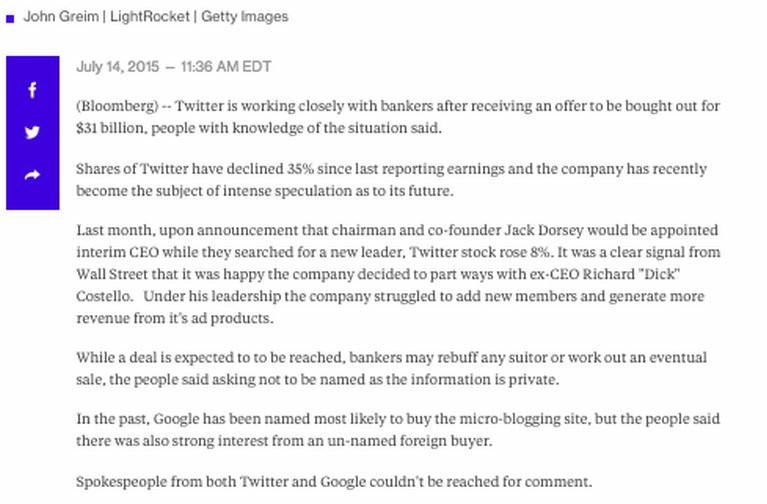People Duped by Twitter Story
A fake story that Bloomberg is buying Twitter sent shares up 8.5% at one point. The news came from the website bloomberg.market-not the real bloomberg.com-with the title "Twitter attracts suitors." The report claimed Bloomberg would acquire Twitter for $31 billion.
According to a Reuters article, experts say the "fake website and report did not require a high level of skill." Anyone can register a website. What's surprising is that people believed the news so readily. Former CEO Dick Costolo's name was misspelled as Costelo in the article.
Although Twitter and the SEC didn't comment on the story, Bloomberg Ty Trippet representative offered a brief statement: "The story was fake and appeared on a bogus website that was not affiliated with Bloomberg."
Discussion Starters:
- What principles of evaluating sources from Chapter 9 would have helped readers assess the story?
- Should Twitter have made a statement about the story? Why or why not? If so, what should the company have said?
- What are the ethical considerations in this story? Who got hurt?
